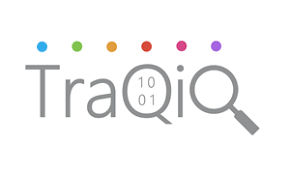Adopting cutting-edge technologies can play a critical part in the pharmaceutical industry’s digital revolution. Capturing this opportunity, however, necessitates the identification of the appropriate initiatives.
Artificial Intelligence (AI), Machine Learning (ML), Augmented Reality (AR), Virtual Reality (VR), the Internet of Things (IoT), and Blockchain are among the innovations that are beginning to transform the pharmaceutical industry in the same way that they have transformed other industries such as media, retail, banking, telecommunications, education, and so on.
Here are a few emerging technologies that are already reshaping the pharmaceutical sector:
Artificial Intelligence (AI) and Machine Learning (ML)
Artificial intelligence and machine learning are without a doubt the pharmaceutical industry’s next big thing. In the healthcare industry, AI is already being utilized to perform repetitive jobs such as data entry, lab test analysis, data management, and so on.
ML is also utilized in disease identification and diagnosis, radiography and radiation planning, clinical trial research, personalized medicine, rare disease identification, and new medication development, among other applications.
AI and ML are likely to be integrated into the majority, if not all, pharmaceutical R&D processes. As a result, drug development success rates should improve and streamline R&D efforts.
IoT Integration
IoT has tremendous potential to benefit the pharmaceutical business. By identifying difficulties and making adjustments before they pose a problem, a network of connected devices with monitoring sensors can reduce the risk of machinery malfunctions and ensure precision output.
IoT integration can help the pharmaceutical industry’s manufacturing sector, for material tracking and management, and even in the manufacturing process of medications. Furthermore, IoT-enabled data-gathering devices can find at shipping and receiving stations, collect information from RFID tags and barcodes, and correlate data from numerous places to ensure consistency.
Omnichannel payment processing
Payment processing based on omnichannel will unlock considerable benefits, such as boosting customer loyalty and happiness, enabling enhanced sales efficiency, and preventing fraud, for many merchants who handle several retail channels and formats. The best method to offer payment processing is to provide a uniform customer experience across numerous channels and locales.
Blockchain
Cryptocurrency and blockchain technology are poised to become a fundamental vehicle of value exchange, despite their tumultuous and unconventional reputations. Blockchain technology should be adopted by the financial world and implemented in specific use cases.
Artificial Intelligence
Artificial intelligence (AI) applications are increasingly disrupting today’s commercial environment. Chatbots, which can arrange and perform basic transactions using simple voice commands, is one example in the payment business.
Focus on Customer Experience
Customer experience is at the heart of the payment revolution. Institutions are increasingly required to use new technology and harness digital innovation to improve the customer’s payment experience.
How do you keep up with payment technology?
To meet client demand and stay ahead of (or at least keep up with) the competition, it’s a good idea to keep up with the latest payment technology. Although switching to new payment methods may require some upfront expenditure, it may wind up saving you money in the long run.
How can TraQiQ help?
TraQiQ offers digital solutions to help large corporations across the world serve their customers better. A robust mobile wallet enables users to manage and control finances through a convergent platform where they can virtually store and use financial assets. TraQiQ also offers solutions that payment service providers need to launch and scale their businesses.
We are well-versed with emerging technologies like AI, Analytics, Machine Learning, and Blockchain. Based on client needs and requirements for various domains, we can assist you in selecting the best option for your company and advancing it to the next level of its digital transformation ladder.








